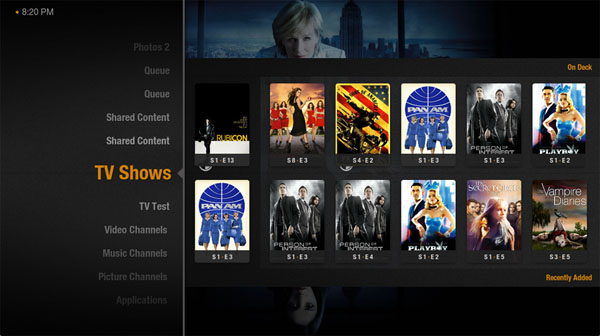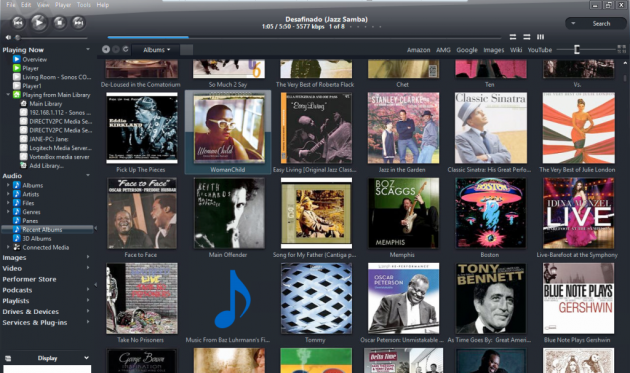Windows Media Center Discontinued in Windows 10 - These are the Top 5 Alternatives
While some Windows Media Center enthusiasts were still waiting for an update to the archaic WMC ever since its development ceased back in 2009, it has since become apparent that such an update will never arrive. Back in May, Microsoft's Gabriel Aul confirmed via Tweet that Windows Media Center would not be a part of Windows 10 due to “decreased usage.”
Indeed, the popularity of WMC had been on a steady decline in the past 5 years, as streaming services, game consoles, and cloud-based alternatives have crowded the home entertainment space with options that are more convenient and capable than Microsoft's now-discontinued Windows Media Center. With that said, there's no need to fret about the discontinuance of WMC in Windows 10, because below we'll introduce you to 5 perfectly suitable alternatives:
1. Kodi (formerly XBMC)
The old Xbox Media Center (XBMC), which has recently been renamed Kodi, is undoubtedly the most popular and feature-rich alternative to WMC. The software began as a hack to get around the limited confines of the original Xbox, and has since morphed to support virtually any platform or file format.
The latest version of Kodi can play almost any media file, and can be customized extensively through the use of a library of skins, plugins, and extensions. It is also compatible with most third-party TV tuners and can therefore be used as a DVR with a variety of streaming services.
In addition to running in Windows 10, Kodi also supports Intel and ARM processors and several versions of Mac OS X and Linux. Linux fans will be happy to know that there's even a variant of Linux that was built specifically for running Kodi - it's called OpenElec. Kodi can also run on most smart TVs, and even on the first generation Apple TV.
If you're in search of a software that can do everything WMC could do and more on a Windows 10 device, there's really no need to look further than Kodi/XMBC. That is, unless you'd prefer a cloud-based service that can stream and manage a media library over the web from any device, in which case you might want to keep reading.
2. Plex.tv
Plex.tv is an online media streaming service that lets you stream content from your local media library and the media libraries of your friends, as well as content from online channels and services like Hulu, YouTube, Netflix, etc., to any device via the internet. While Plex.tv offers the added benefit of being a cloud-based service (allowing remote playback across all devices anywhere you can connect to the web), it can also be used locally in Windows 10 as a fully capable alternative to the now discontinued Windows Media Center.
The primary difference between Plex.tv and Kodi is that Plex.tv streams media from an online server, which provides web access to your local media library, your friend's media libraries, and other online channels and services, whereas Kodi is mainly used to manage local media libraries on a specific device.
Thus, even though Plex.tv has more online and remote streaming capabilities, we listed Kodi (XBMC) at the top spot because it is the most similar to the old Windows Media Center.which was not cloud-based. With that said, if we had to pick an editor's favorite it would probably be a combination of Plex.tv and Kodi, depending on what you're trying to accomplish.
If you're still curious about the differences between the top 3 WMC replacements, check out our thorough Kodi vs. Plex vs. Emby comparison to learn more about which one might be better for your needs and preferences.
3. Emby
With an awesome interface that shares similarities with Plex, support for live TV streaming services, comprehensive media management features, automated mobile/cloud syncing, built-in parental controls, and even support for Chromecast, Emby is perhaps the emerging underdog in the competition.
As an added perk, Emby can also re-encode files and convert them into formats that are compatible with the device you're using to access the media, provided your PC has sufficient operating resources.
In addition to Chromecast, Emby also supports other TV apps and services, including Amazon Fire TV and Android TV. Like many of its competitors, Emby can be used to quickly stream content from your media library onto multiple devices on your network, and with support for Digital Living Network Alliance (DLNA) and re-encoding capabilities the software ensures that every video or audio file can be accessed and played on any device.
4. MediaPortal
MediaPortal is a popular open source media center software that offers everything you'd expect from a good WMC replacement and more. The sleek and customizable interface makes it easy to play and record music, television, video files and even songs from online radio stations.
While the setup and customization features aren't as convenient as Kodi's, being that you have to adjust the settings in a separate interface, the design is already aesthetically appealing out of the box.
Like other media center programs, MediaPortal can be improved and expanded with plugins, which can be installed using a separate 'Extensions Manager' app. MediaPortal makes it easy to keep up with RSS feeds, news headlines, and weather forecasts. The software is also highly flexible in the design department, letting the user change the appearance of the GUI by installing a variety of community designed skins.
With hundreds of plugins and skins, and a robust TiVo-style interface that is useful for watching and recording live TV and radio, MediaPortal easily deserves a spot on our list of the top 5 WMC alternatives.
5. JRiver MediaCenter
Last but not least, if you're willing to opt for a premium paid option, JRiver Media Center is a huge favorite with many audiophiles and media-heads. A single license costs around $50, but with many users saying it provides the highest quality music playback across all devices, the extra cost might be warranted for those of you who want the best music listening experience out of your media center.
Of course, JRiver Media Center also has sleek interfaces for movies and photos as well, and includes support for DLNA to ensure that virtually every file format is supported. Although most users will find one of the free solutions recommended above to be perfectly suitable for their media management needs, if you demand the best in audio playback quality, it may be worth your while to look into JRiver Media Center.
Bonus Tip - Use Game Consoles, Streaming Services, and Modern Apps
Aside from using one of the Windows-based media centers listed above, you can also assemble and manage a massive media library using game consoles and/or streaming content services like Netflix or Hulu. The convenience of streaming content and game consoles is one of the reasons why Windows Media Center became obsolete, so rather than looking for an alternative software to replace it, why not switch to a new form of home entertainment instead?
The XBOX 360, Xbox ONE, PlayStation 3, and PlayStation 4 can all be used to run major media streaming services, and these devices also include a decent amount of hard drive storage for storing and streaming your own media locally. While game consoles are more limited in the types of audio and video formats they support, you can run a DLNA server and stream the content from your PC to the console to get around any format compatibility issues. Here are a few videos to help you get started with streaming content to the latest game consoles locally using DLNA:
Streaming content from XBox One using DLNA:
Streaming content from a PlayStation 4 using DLNA:





